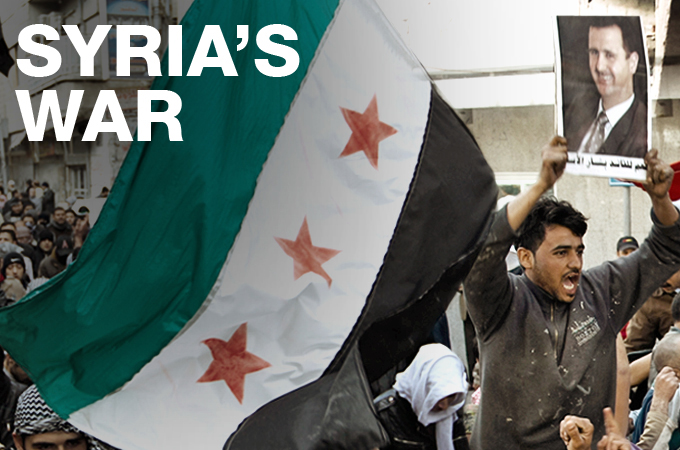Pro-government TV says at least 14 killed in attacks, as Gulf states pledge sanctions against Hezbollah.
Two suicide bombers have struck the heart of the Syrian capital Damascus, killing at least 14 people and wounding at least 31 others, pro-government television channel al-Ikhbariya has reported.
Activists said one of the explosions took place inside a police station and that many among the dead were policemen.
A security official quoted by al-Ikhbariya said the suicide bombers struck near a police station in the bustling Marjeh Square in the heart of the capital.
"Two suicide bombers attacked Marjeh Square causing casualties and material damage," the broadcaster said on Tuesday morning.
The channel screened images showing badly damaged vehicles and bloodied pavements.
"It seems the terrorists have struck again," said a television presenter, using the government’s term to refer to rebels fighting President Bashar al-Assad's troops.
The Britain-based Syrian Observatory for Human Rights, which has a network of activists on the ground in Syria, said 15 were killed in the explosions, one of which was caused by a man who blew himself up inside the police station in the square.
The Observatory said the other explosion occurred outside the police station
Suicide and car bombs have become common in Damascus. Some of the deadliest attacks targeting security installations have been claimed by the al-Qaeda-linked Jabhat al-Nusra - one of scores of rebel factions fighting the forces of President Bashar al-Assad.
GCC sanctions
Meanwhile, the Gulf Arab states have promised sanctions against members of the Lebanese Shia group Hezbollah in retaliation for its intervention in Syria's ongoing civil war in support of President Assad.
The six Sunni-led members of the Gulf Cooperation Council (GCC) issued a condemnation on Monday, according to a statement from the GCC secretariat carried by the Saudi Press Agency.
"The GCC ministerial council has decided to take measures against those enlisted in the party [Hezbollah] residing in the member states, whether with regard to their residencies or their financial and commercial dealings," it added, without giving any specific details.
Saudi Arabia and Qatar, both GCC members and US allies, have been explicit in calling for Assad to go, and have been arming the mostly Sunni rebels seeking to oust him and his mostly Alawite regime, members of an offshoot of Shia Islam.
 |
| Spotlight
In-depth coverage of escalating violence across Syria
|
The rebels suffered one of their biggest setbacks last week when Hezbollah fighters helped Assad's forces to retake the Syrian border town of Qusayr, which controls vital supply lines.
Hezbollah leader Hassan Nasrallah said last week that Syria and Lebanon faced a common threat from radical Sunni Islamists.
GCC member Bahrain, which has struggled to quell a Shia-led uprising in its own country, has called Hezbollah a “terrorist” organisation and banned its citizens from having any contact with the group.
